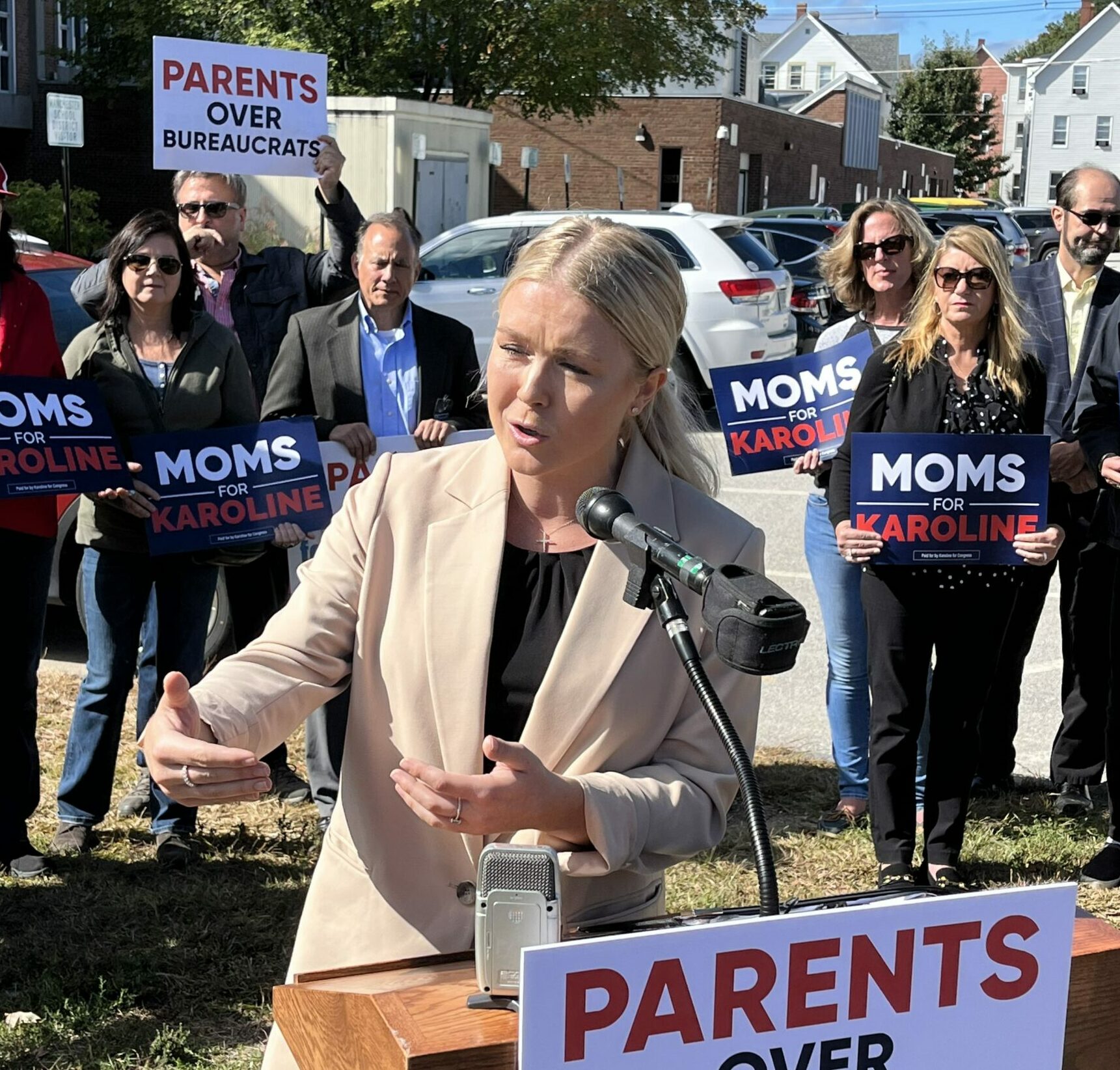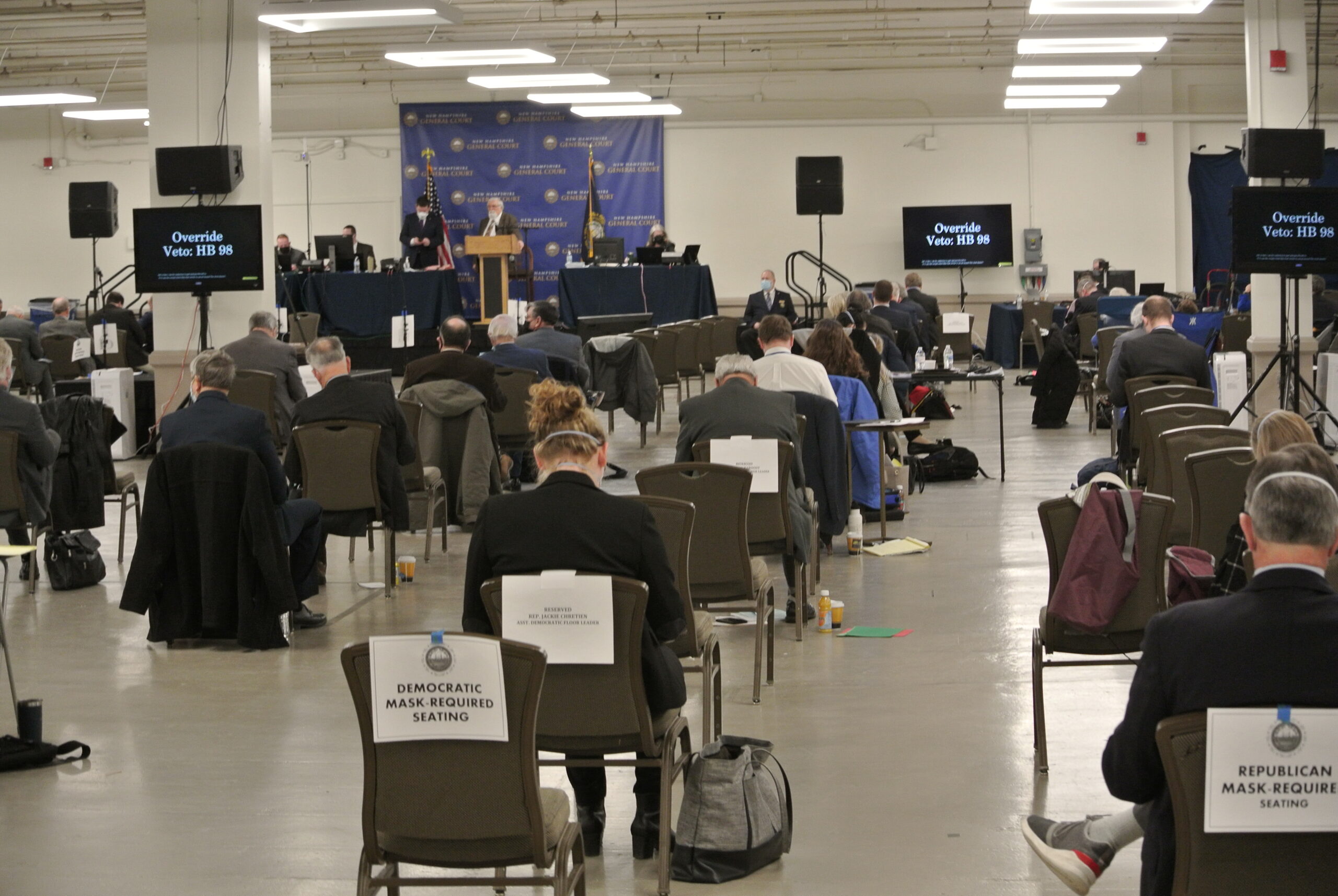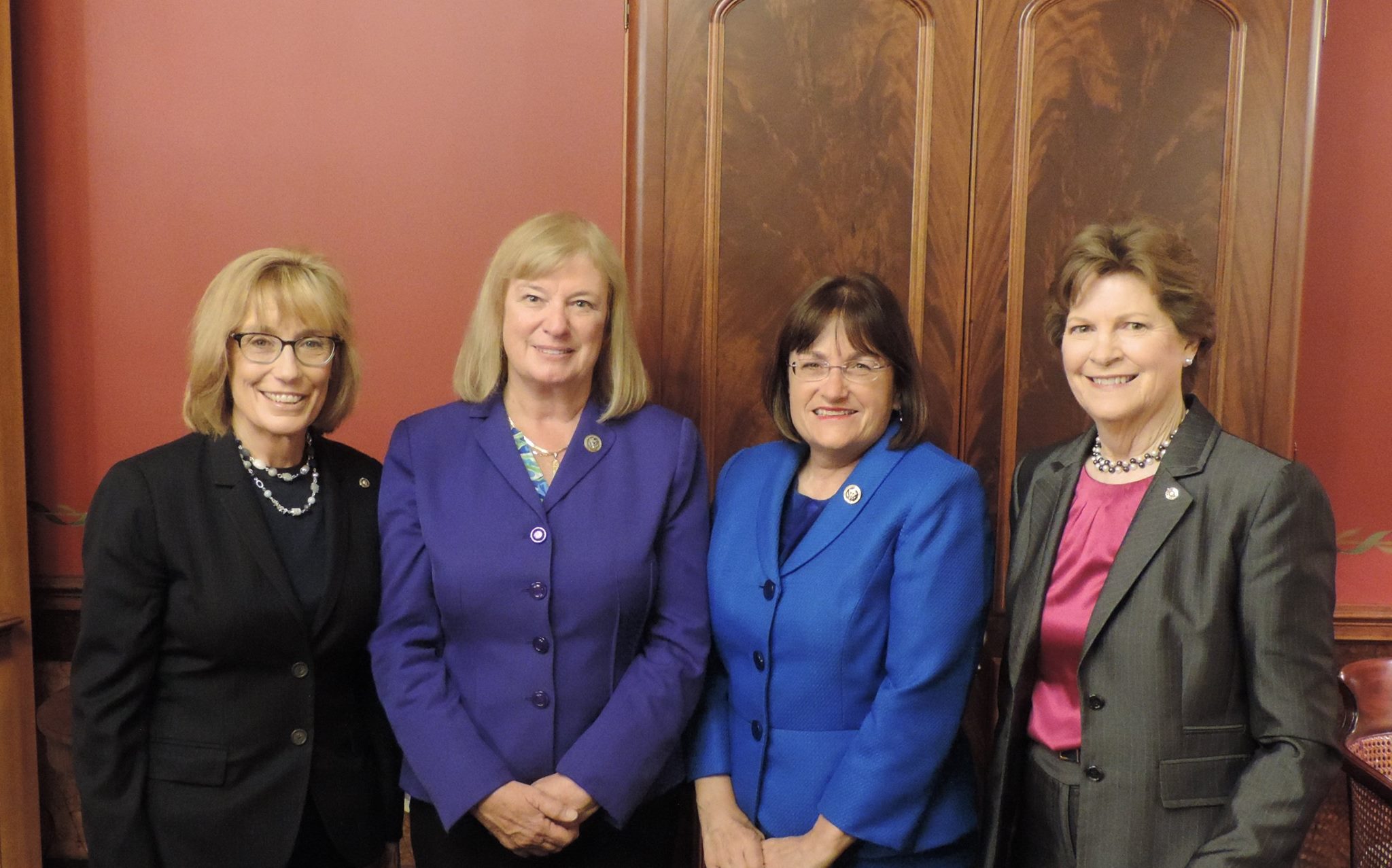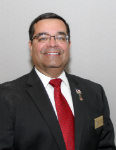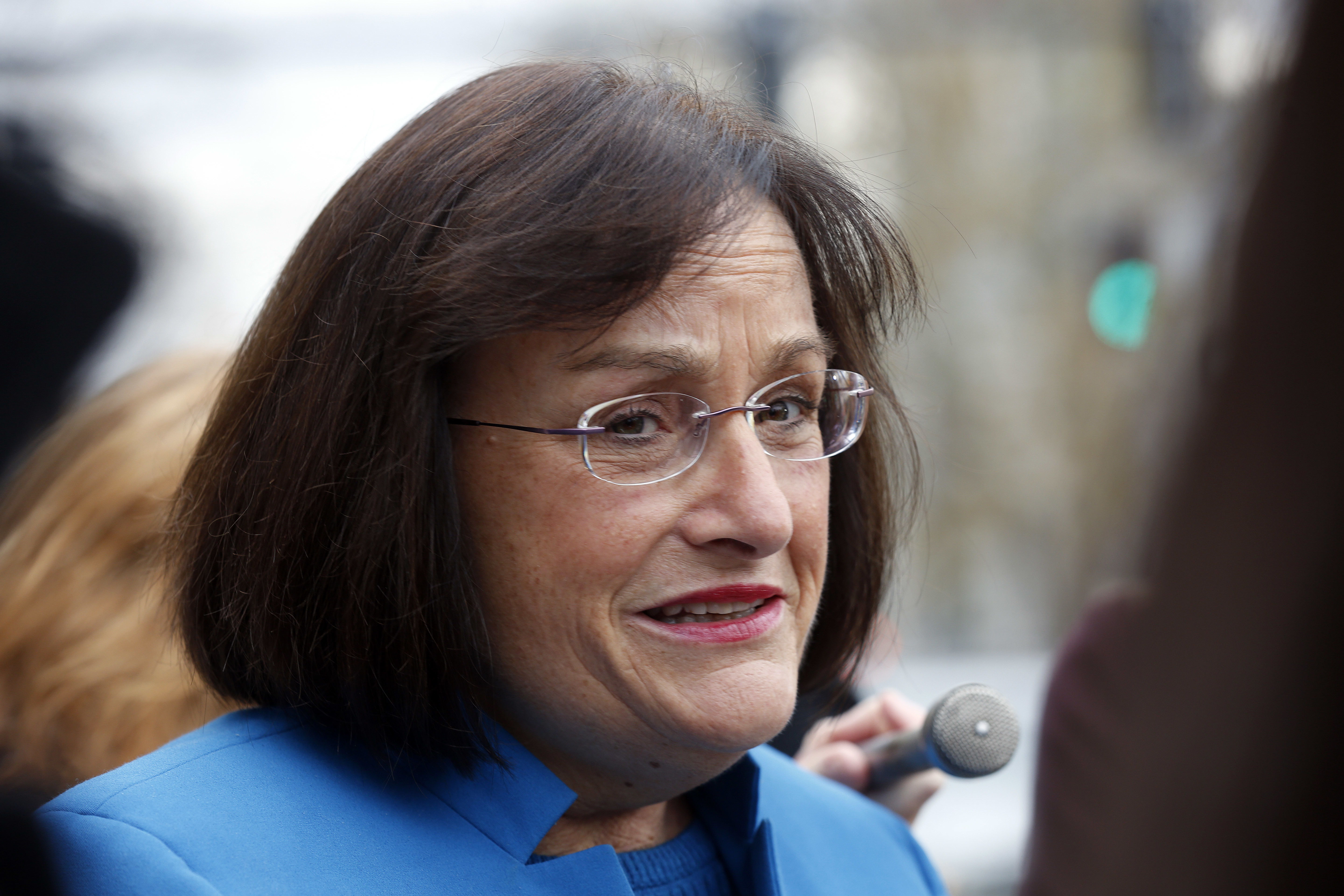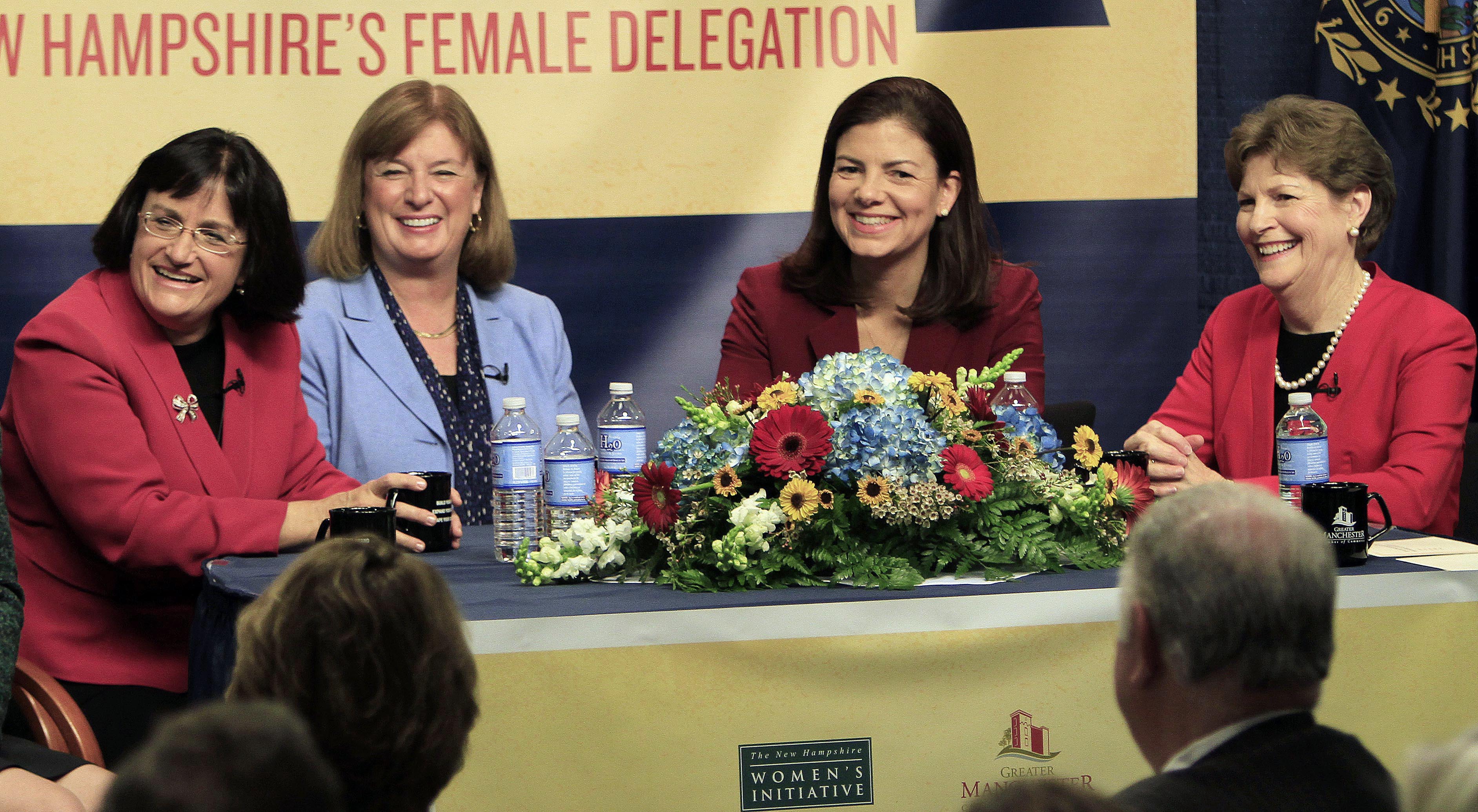Candidates Revved Up in NH-01 GOP Debate
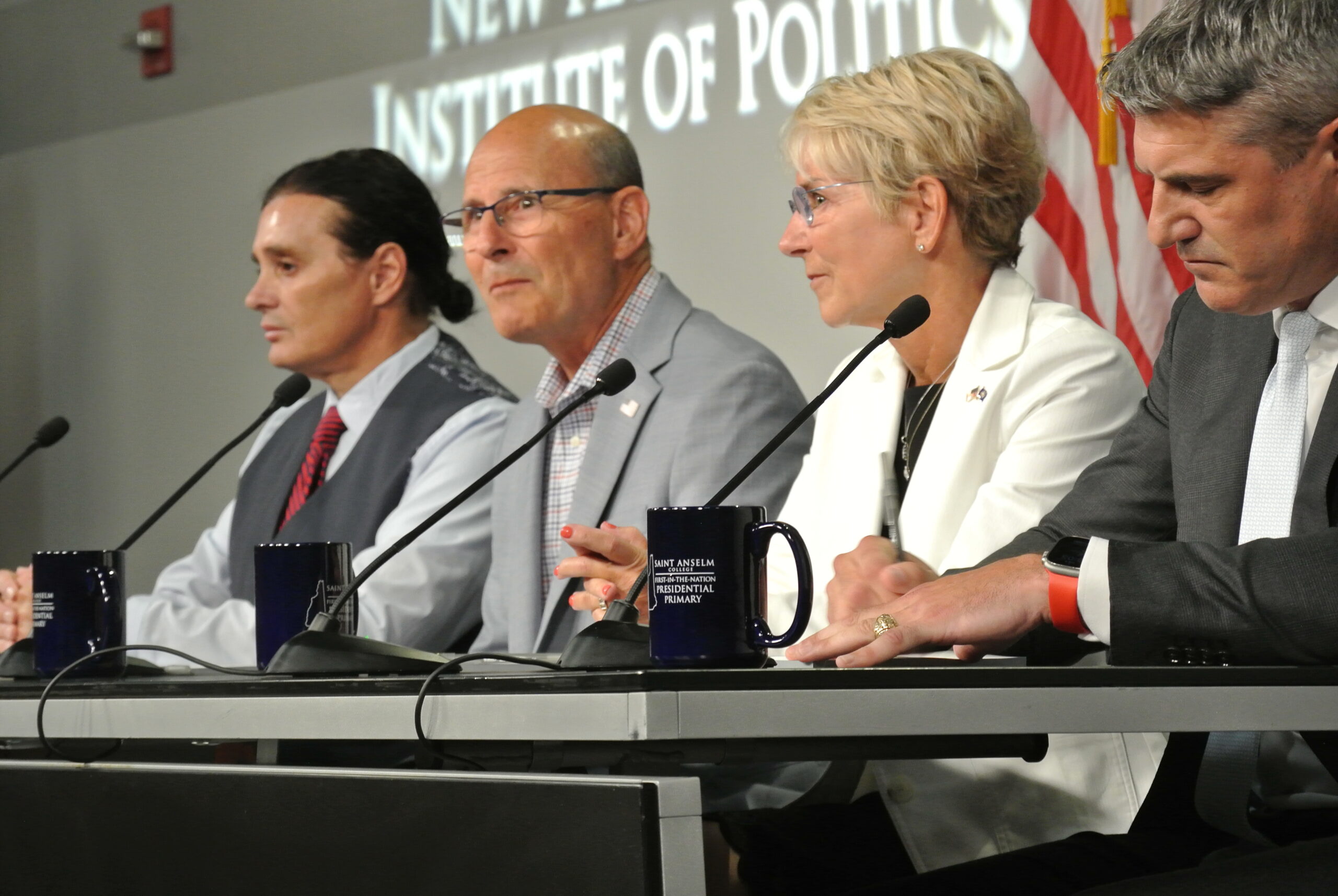
The four GOP candidates in the First Congressional District primary showed Tuesday night they are up for a fight, whether it’s incumbent Democratic Rep. Chris Pappas, President Joe Biden, or occasionally each other.
Two business owners and veterans, Chris Bright and Hollie Noveletsky, joined Manchester Alderman Joe Kelly Levasseur and former Executive Councilor Russell Prescott at the New Hampshire Institute of Politics at St. Anselm College for the NHJournal GOP primary debate.
The number one question: Which candidate has the best chance to defeat Pappas?
“We have a perfect example: Manchester, New Hampshire,” said Levasseur when asked to make his case.
“For the first time since 1998, the board is red. We have seven Republican aldermen and a Republican mayor. And for the first time since 1998. We have a Republican chairman: Joseph Kelly Levasseur.
“There’s no one Chris Pappas, the Invisible Man, fears more,” Levasseur added. “I have won seven straight elections in a blue city as a Republican — and not a milquetoast Republican, a Republican that is Trump tough.”
Bright pointed to demographic changes, as well as the GOP’s struggles with the abortion issue.
“We have to get somebody [to D.C] just back at the table,” Bright said. “When I moved here in 2005 this was a red state. Then it became a purple state, now it’s a blue state. We need to engage with independent voters, and the abortion issue hurts us. We have to get our act together on abortion.”
Prescott, who ran unsuccessfully in the GOP primary for this seat in 2022, said his strategy of staying positive is the winner, pointing to his victories over Maggie Hassan in state Senate contests in 2002 and 2010.
“I look back at my races against Maggie Hassan, and it was a positive message that gets the independent voter to take a second look at a Republican,” Prescott said. “A Republican with a positive message, that’s what I have been doing for many, many years.” Prescott also mentioned his time working with Pappas on the Executive Council.
“We don’t need more of the same. We don’t need people who worked with him and caused this problem,” Noveletsky retorted. “We need something different.”
She also blamed an influx of voters from blue states.
“As people have moved to New Hampshire because it is such a favorable state to live in, because of our taxes and because of our quality of life, they bring with them their politics,” Noveletsky said. “We need to educate them about the values here in New Hampshire, and about why we’re different. And teach them to leave their politics at home.”
Pappas was the main target Tuesday night, as Republicans accused him of failing to stand up for New Hampshire and instead acting as a rubber stamp for Biden.
Asked what one question they would ask Pappas on a debate stage, Noveletsky answered, “How do you sleep at night?”
All four candidates said Biden is too infirm to serve another four years, and they noted that Pappas has met with the president several times and must have seen the deterioration — not to mention the steady supply of stumbles and bumbles in Biden’s public appearances.
“We’ve been lied to for the last two years,” Bright said.
Noveletsky, a nurse who worked with the elderly and dementia patients, said Biden is clearly infirm and cannot do the job. Levasseur likened Biden’s situation to the movie Weekend at Bernie’s, and Prescott noted Biden’s infirmities are a national security danger.
Asked to name their priority if elected to Congress, Prescott, Bright and Noveletsky identified out of control spending, skyrocketing inflation, and illegal immigration as top concerns. The more discursive Levasseur simply offered to follow the lead of former president and current GOP presidential candidate Donald Trump.
“Elect me and send me to Washington and I will be Trump’s main guy working on an America First agenda,” Levvasuer said.
Trump’s “America First” political philosophy influenced the public policy proposals from the candidates on stage. Noeveltsky wants to close both southern and northern borders to stop illegal immigration and build Trump’s oft-promised but never-completed wall at the southern border. All four candidates also said they support Trump’s call for stepped-up deportations of illegal immigrants.
“I do believe we need to deport them, I don’t believe we’re going to go door to door,” Noveletsky said.
Bright acknowledged he supported former U.N. Ambassador Nikki Haley in the primary after voting Trump in 2016 and 2020. He said Haley offered most of the policies of Trump, but with a younger candidates and far less “baggage.”
“We need a younger generation coming in,” Bright said.
Prescott declined to say who he backed in the First in the Nation primary, calling the issue “old news.”
On abortion, all of the candidates are following Trump’s lead again. No one on stage supports a federal abortion ban, a major plank in past GOP platforms. Instead, like Trump, they all say with the Dobbs decision sending the question back to states, there is no longer a need to push for a federal ban.
Pappas has handily won every general election since taking office in 2018, and the Cook Political Report currently rates the district as “likely Democrat.” But a weakened Biden candidacy could hurt Democratic turnout and give a strong Republican candidate the chance to pull an upset.
Tuesday’s debate also generated its fair share of laughs, with some of the audience’s loudest prompted by a lightning round question session asking candidates to name a local restaurant where they’d pick up the tab for lunch or dinner with the debate’s moderator.

